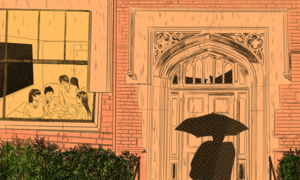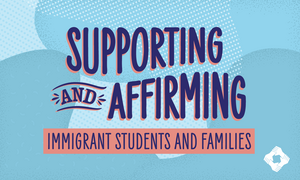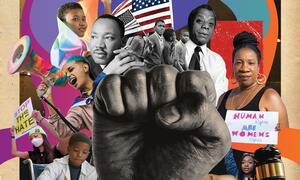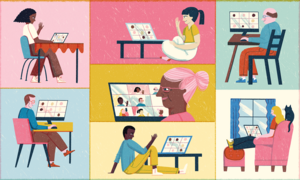Affirm LGBTQ+ Young People by Creating Inclusive Learning Spaces
It is imperative to provide inclusive education because, as GLSEN’s Executive Director, Melanie Willingham-Jaggers, emphasizes, “Accurate and inclusive lessons not only affirm LGBTQ+ students, but also give non-LGBTQ+ students clear information about the diverse world around them and help prepare all young people to navigate and contribute to a multicultural society.”

Inclusive Education Benefits All Children

Visibility is Power

Gender-Affirming Care: What It Is and Why It's Necessary
Uplifting Immigrant Students and Families
Immigrant communities continue to strengthen our diverse democracy. Through community organizing, immigrant children and their families are finding ways to navigate difficult situations. In expanding democracy to ensure inclusivity, there is much that we can learn from these efforts and how we can all support immigrant communities and those harmed by discrimination and bias. These LFJ resources can help.

Community Organizing Uplifts Immigrant Students

School as Sanctuary

Supporting and Affirming Immigrant Students and Families
Diverse Perspectives Matter: Centering Diversity, Power and Care
“The reality of racism must be honestly confronted for our society to build a more equitable future for all children.” —Ivory A. Toldson, Ph.D.

Centering Diverse Parents in the CRT Debate

Power of the Vote: Lifting the Veil of White Supremacy, From the Ocoee Massacre to January 6

A Care Plan for Honest History and Difficult Conversations
Expanding Democracy Through Intersecting Movements
In the continuing fight for justice and the expansion of democracy, understanding intersecting movements to end oppression is imperative and inspiring. Those at the intersections of geography, gender, poverty and race, as LFJ Director Jalaya Lyles Dunn explains, “will determine the fate of our democracy,” and have often been the agents of change, as witnessed by the connections between the past and the present highlighted in the Southern Poverty Law Center’s Civil Rights Memorial Center.

Expanding Democracy Through Intersecting Movements

Expanding Democracy

Uplifting the Voting Process for Young People
With so many significant issues in the balance, it's imperative that we pay attention to the upcoming midterm elections, particularly on the local level. Young people, families and communities need to know how powerful their votes are in our democracy. These LFJ resources can help you support your students—and all the young people in your life—in learning about the voting process and ongoing civic responsibility.

Uplifting the Student Vote

Teaching Digital Literacy This Election Season
